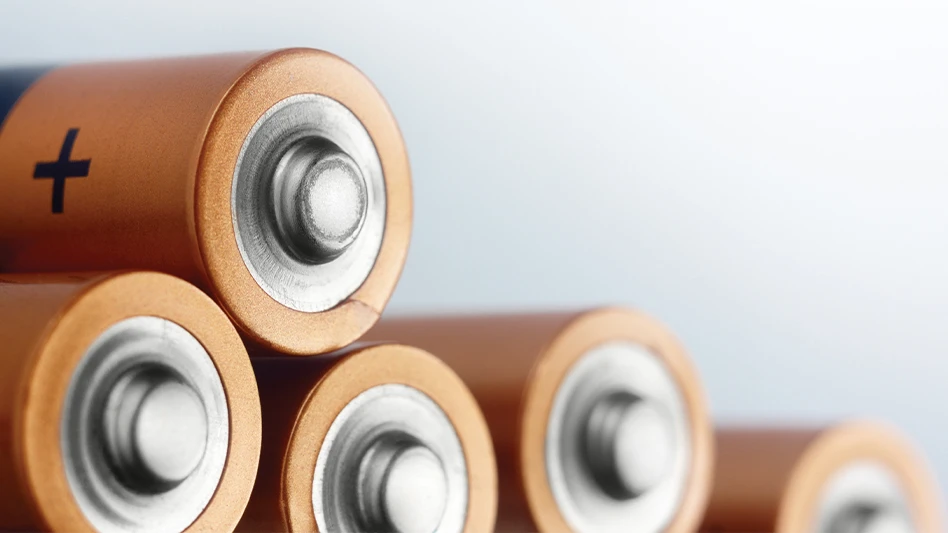
Recycling Today archive
Washington state lawmakers have passed a bill establishing extended producer responsibility (EPR) for batteries. The bill passed the Senate on March 7 and the House on April 6, and now is on Gov. Jay Inslee’s desk.
The bill (SB 5144) includes a wide range of single-use and rechargeable battery types, including e-mobility, portable and medium format. The Product Stewardship Institute (PSI), a nonprofit circular economy policy advocate and consultancy based in Boston, says the broad scope is essential to an effective system because it “fairly allocates recycling costs to all battery manufacturers and eliminates free riders.”
RELATED: Washington bill proposes battery recycling program
Batteries contain valuable materials such as steel, manganese and zinc, which are mined using energy-intensive processes that emit greenhouse gases and contain hazardous materials. Additionally, lithium-ion batteries have been connected to an increase in fires at waste management and recycling facilities. PSI says collecting and recycling batteries saves valuable resources, reduces environmental and human health impacts and helps prevent the health and safety hazards posed by these discarded products entering the waste stream.
The new law has been endorsed by Zero Waste Washington and PSI’s state and local members in the and includes elements of PSI’s model EPR legislation. PSI adds the law will create a statewide battery stewardship program for Washington that is managed and sustainably funded by producers, reducing greenhouse gas emissions and removing toxic substances from the waste stream. It includes:
- performance goals to drive program effectiveness;
- convenience standards to ensure the program is accessible statewide;
- education and outreach, including resources targeted at overburdened and vulnerable communities to raise public awareness about how to recycle batteries; and
- annual reporting to monitor program implementation.
The bill also contains other elements, including material fees that incentivize environmental performance, a stewardship plan and opportunities to improve the plan as the program is implemented and matures. Local governments will have the opportunity to participate in the program and be reimbursed by producers for their costs of collection, while also saving money as transportation and processing costs are absorbed by producers.
By January 2030, the Department of Ecology will be given the option to adopt rules that require producers of large format batteries and those in battery-containing products—including those that are embedded and/or not designed to be easily removed—to participate in a stewardship program that achieves environmentally positive outcomes.
Large format batteries that weigh more than 25 pounds, such as those used in electric vehicles, solar power systems and data centers, are expected to experience significant market growth in the coming years, PSI says. Similarly, the organization adds battery-embedded products—which refer to products that contain batteries not designed to be removed from the product by the consumer—either end up in the waste stream or are sent to battery/electronics recycling centers, where they can be expensive to dispose of.
The organization notes British Columbia and the European Union as examples of governments that have already expanded their battery EPR programs to include these types of batteries and says many producers that sell into those jurisdictions will already have to meet these requirements. PSI recommends that Washington expand the program as soon as possible, and that it establishes a multistakeholder advisory committee, comprised of representatives from local government, the solid waste industry, the environmental community and those involved in battery collection and recycling, to provide greater transparency and accountability, as well as an opportunity for stakeholders to provide ongoing input.
Washington has previously passed and implemented EPR programs for electronics and mercury-containing lamps, and has enacted stewardship programs for solar panels, pharmaceuticals and paint.
Latest from Recycling Today
- Tire Industry Project publishes end-of-life tire management guide
- Des Moines project utilizes recycled wind turbine blades
- Charter Next Generation joins US Flexible Film Initiative
- Vecoplan to present modular solutions at IFAT 2026
- Terex Ecotec appoints Bradley Equipment as Texas distributor
- Greenwave raises revenue but loses money in Q2 2025
- Recycled steel prices hold steady
- EY says India’s need for scrap imports will continue





